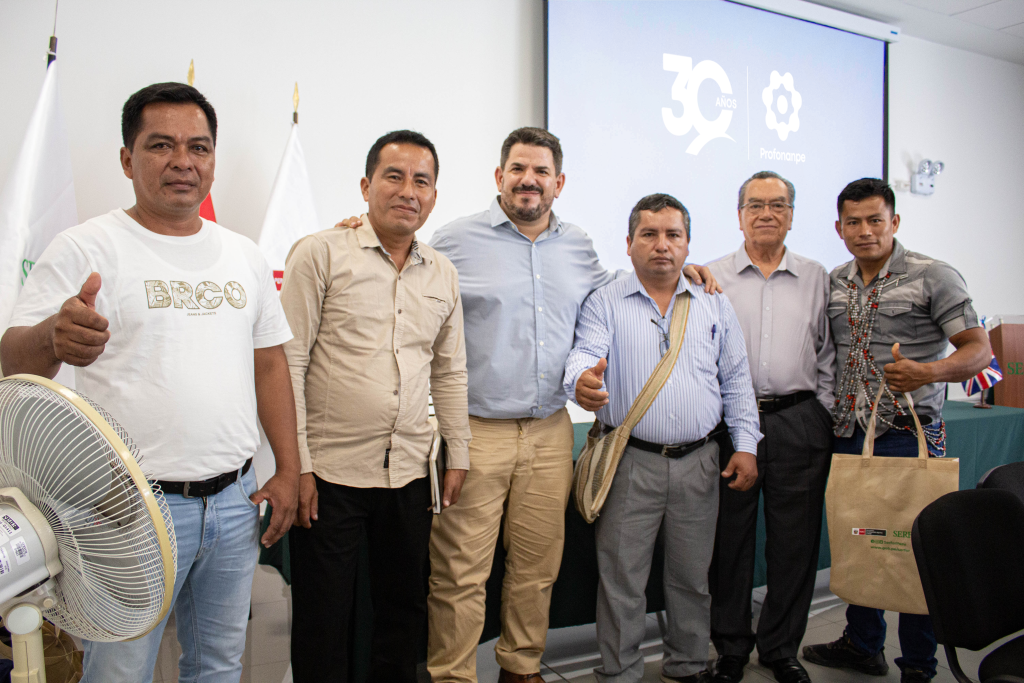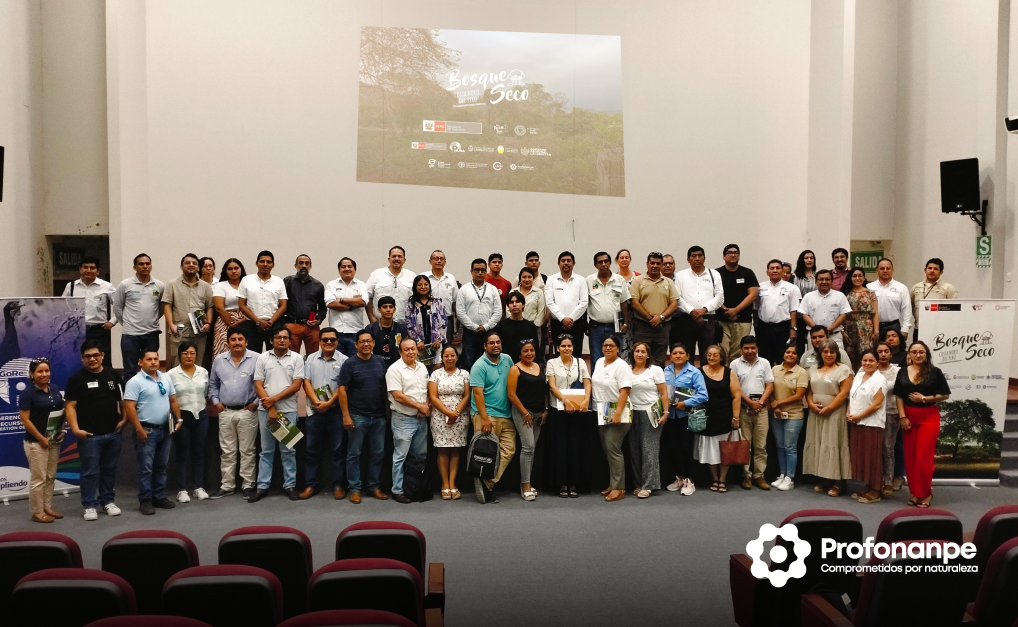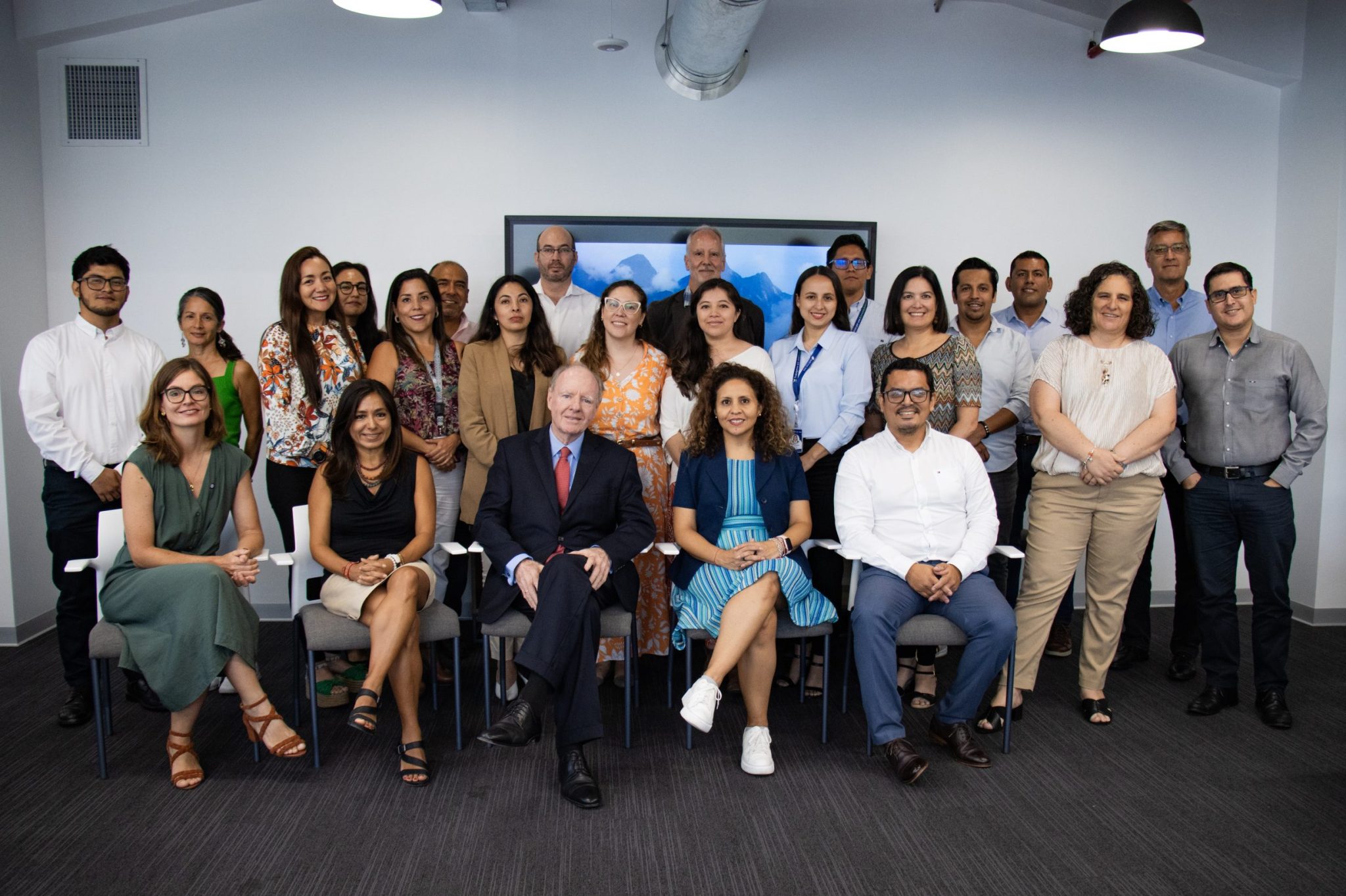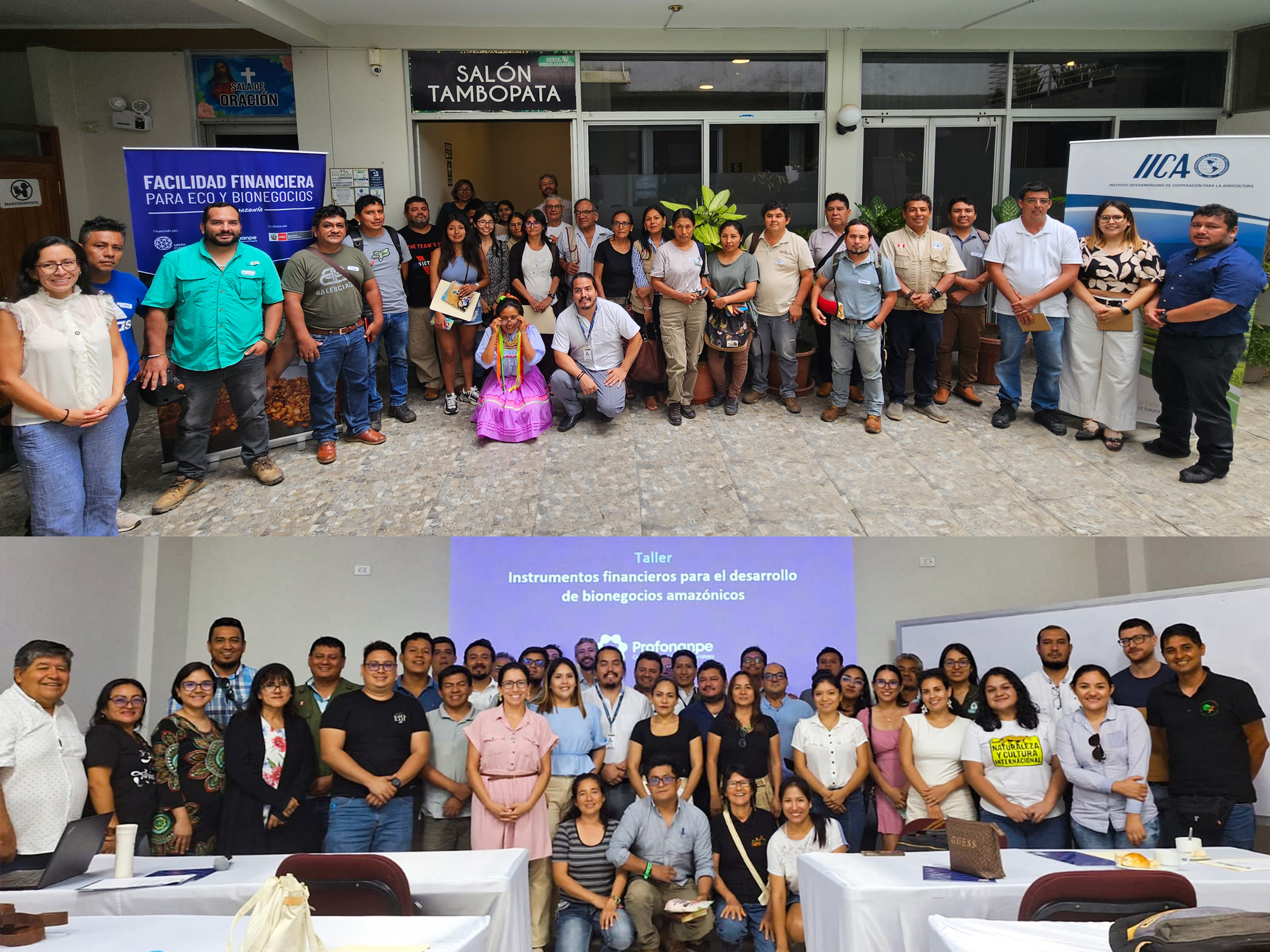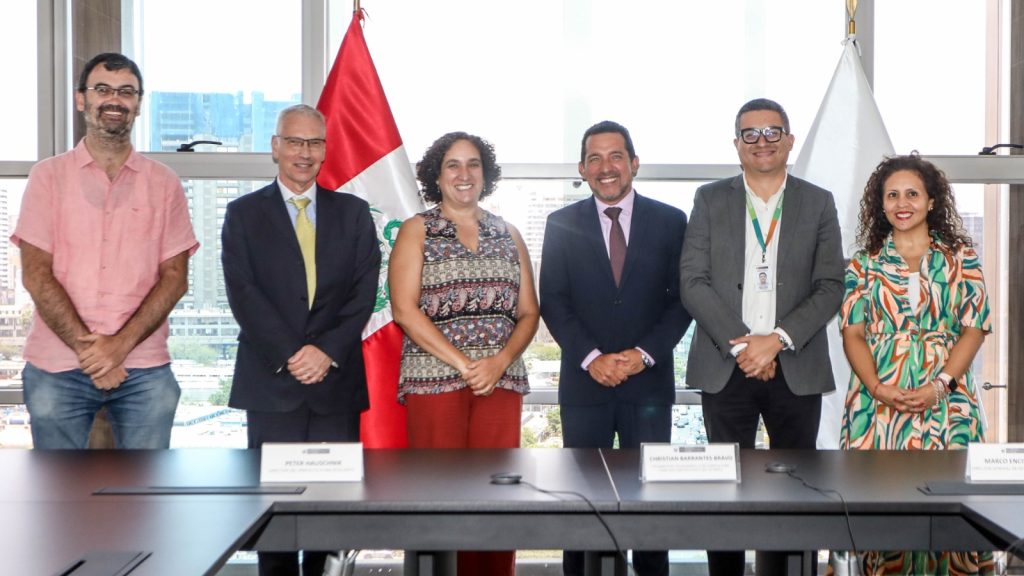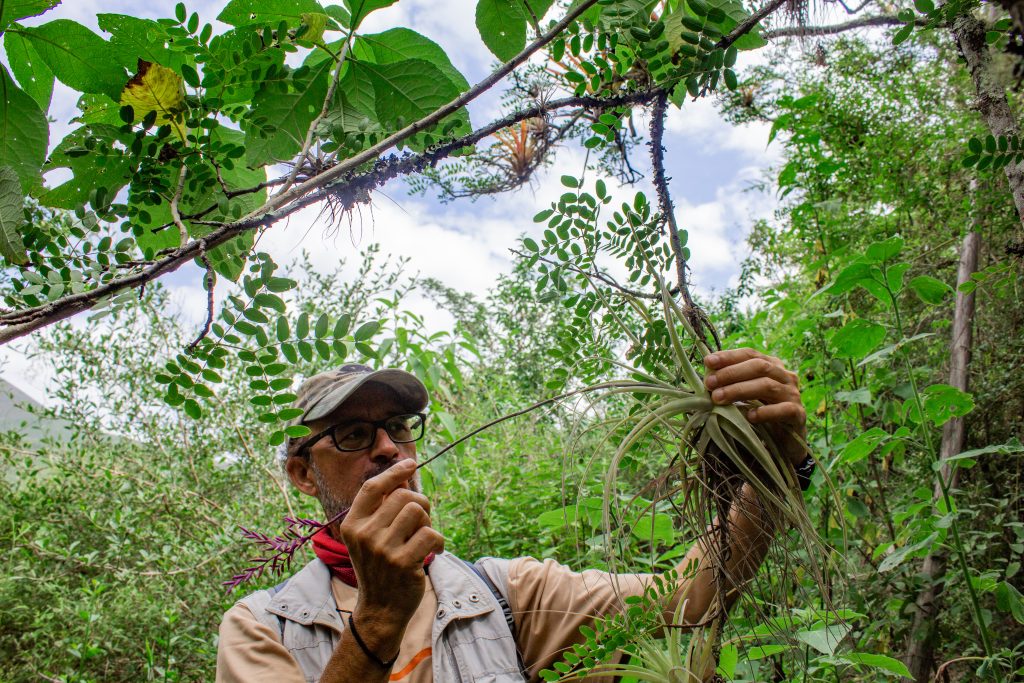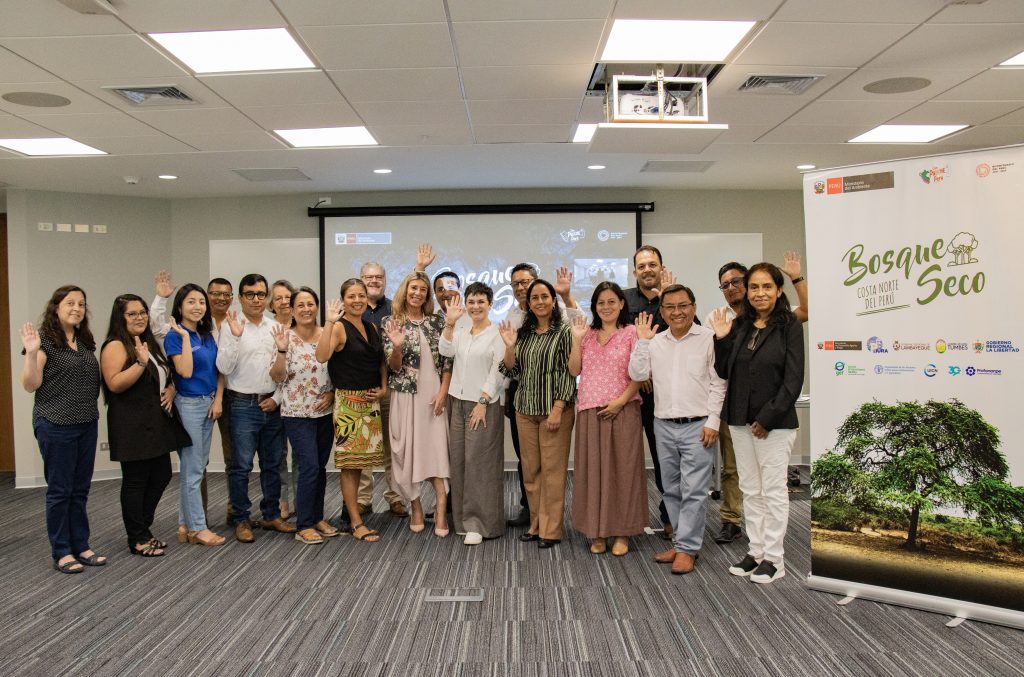On March 13, in the Serfor auditorium, the “First seminar on the use and adoption of renewable energies in sustainable production chains in indigenous territories” was held, in which different companies, productive associations and state institutions exchanged experiences on the use of clean energies and the importance of their implementation in sustainable production in Peru, with the aim of increasing competitiveness and combating climate change.
Luis Alberto Gonzales-Zúñiga, Executive Director of the National Forestry and Wildlife Service (SERFOR), and the Ambassador of the United Kingdom in Peru, Gavin Cook, began the event by emphasizing the work being done by the State and the embassy to generate the exchange of technological knowledge that promotes support for pollution-free value chains -with the aim of strengthening sustainable bio-businesses through the use of clean energy- from an environmental development perspective.
Currently, “we are exchanging experiences and opportunities to explore new forms of support from the bioeconomy, articulating their efforts from green finance and market access, with clean energy and sustainable infrastructure,” said Gavin Cook, Ambassador of the United Kingdom in Peru.
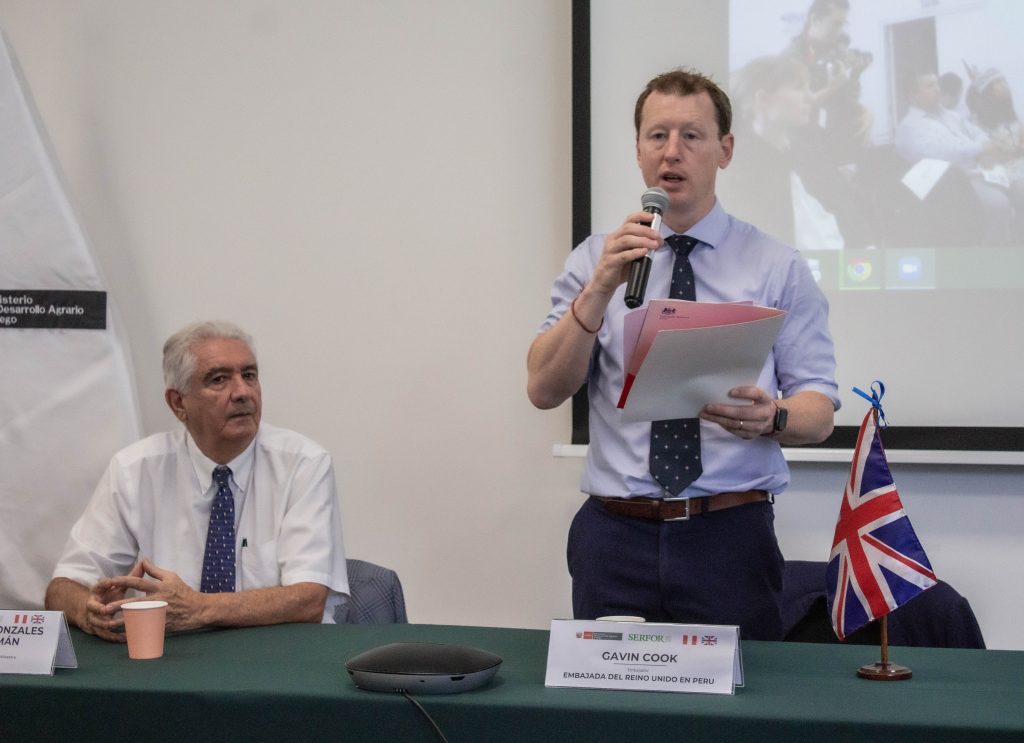
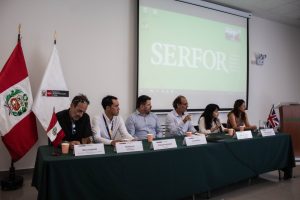
The event was attended by members of different projects such as Iñigo Maneiro, Director of the Social and Cultural Area of the Binational Development Plan for the Peru-Ecuador Border Region; Tomás Luy, General Manager of Novum Solar; and Luis Marino, Director of Conservation International’s Business Alliance for the Amazon; Sandra Vergara, Coordinator of the Rural Sector Support Group of Pontificia Universidad Católica del Perú; and Fanny Carhuancho, Professor of the Environmental Engineering Department of Universidad Nacional Agraria La Molina; who, from their respective fields, presented the scope of their projects and research in renewable energies and how they have benefited different Amazonian communities.
Ignacio Piqueras, bio-business specialist of the project “Building Resilience in the Datem del Marañón Wetlands, Loreto”, presented the work and progress of the productive associations that have been developed and strengthened within the framework of the work of Profonanpe, Peru’s environmental fund. In this sense, it is highlighted that so far, the quality improvement has been achieved by having permanent energy and increasing business productivity by approximately 150 %.
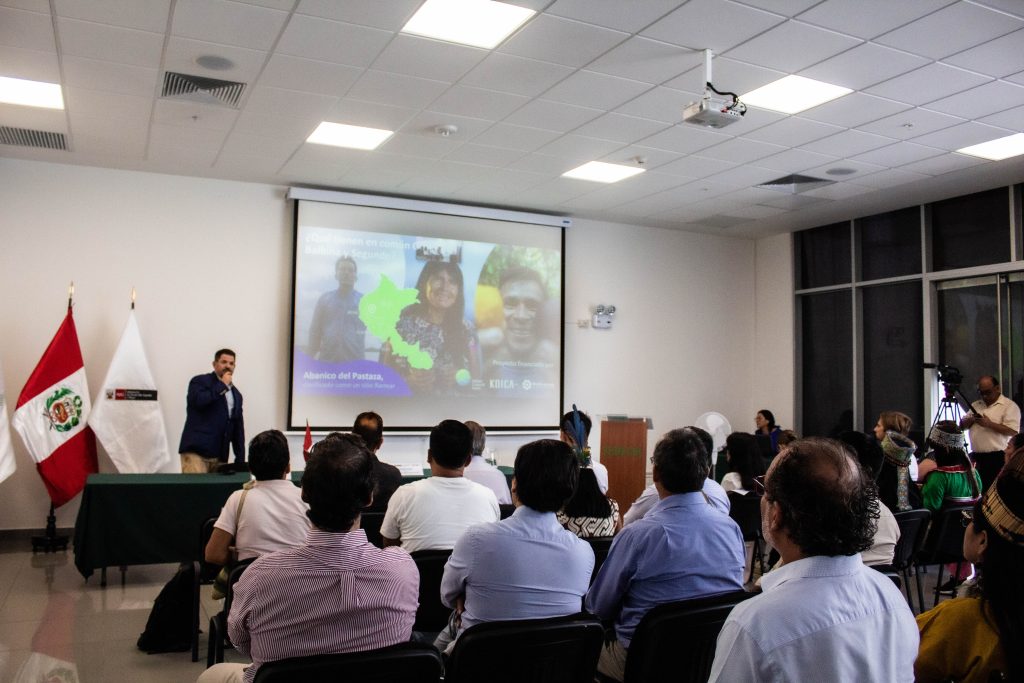
Among those present were José Alarcón, President of the Achuar Shakaim Agrarian Cooperative, and Gabriel Cruz, President of the Association of Producers of Ungurahui and Aguaje of Indigenous Peoples of the Marañón Sector – APUAPISEM, who highlighted the work done in conjunction with Profonanpe that has allowed their bio-businesses to generate, in the last year alone, an important production of cocoa and chocolate, and more than 400 liters of aguaje oil, respectively.
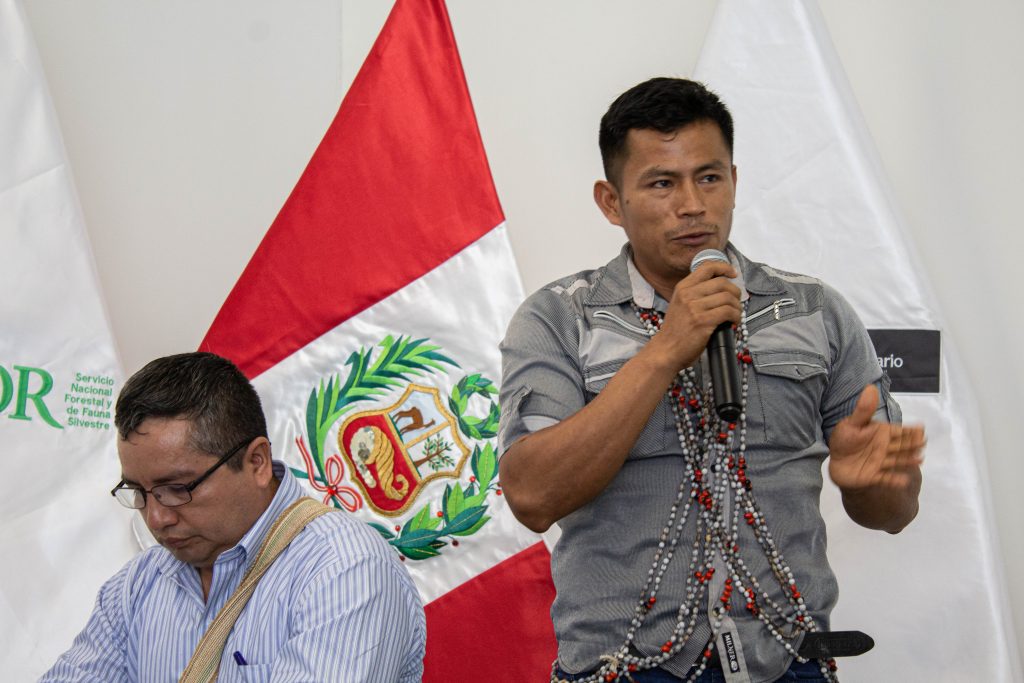
This space made it possible to highlight the progress that has been made in overcoming social inequalities and enabling the development of sustainable businesses. It also showed good practices in the use of science that have improved the resilience of indigenous communities and their living conditions, while at the same time seeking to reduce carbon emissions.
About the Datem Wetlands Project
Since 2017, Profonanpe has implemented the Datem Wetlands project, which focuses on improving the resilience of indigenous communities living in wetlands and reducing greenhouse gas emissions caused by deforestation. To date, more than 9,000 people have benefited from the development of this initiative and 7 bio-businesses are operational.
To learn more about this initiative visit: https://profonanpe.org.pe/humedales-para-la-vida/


